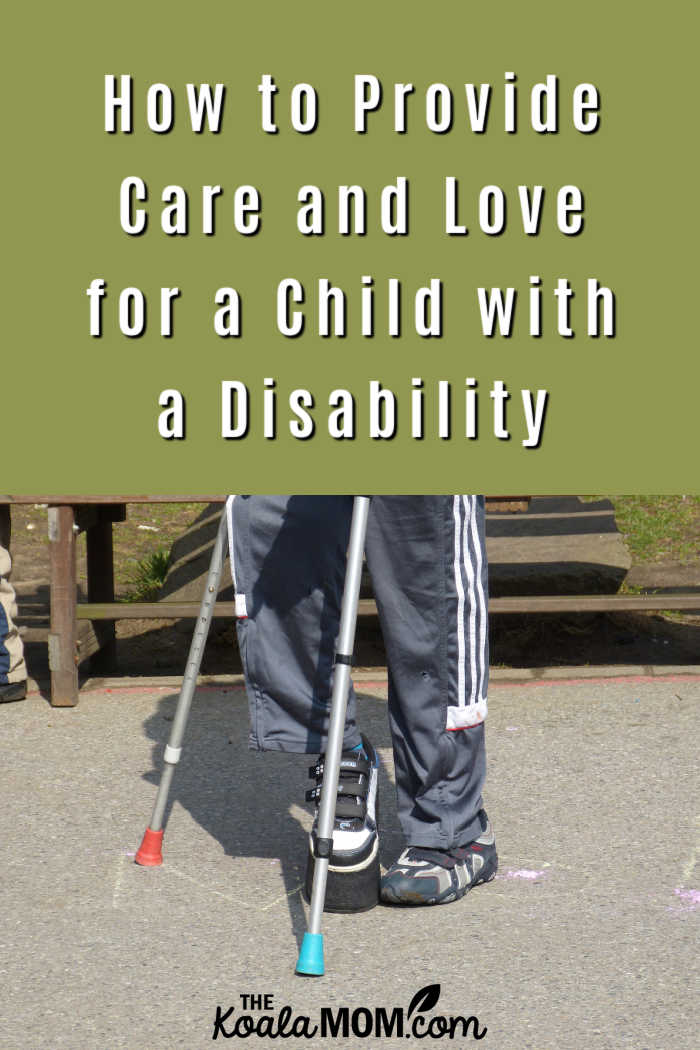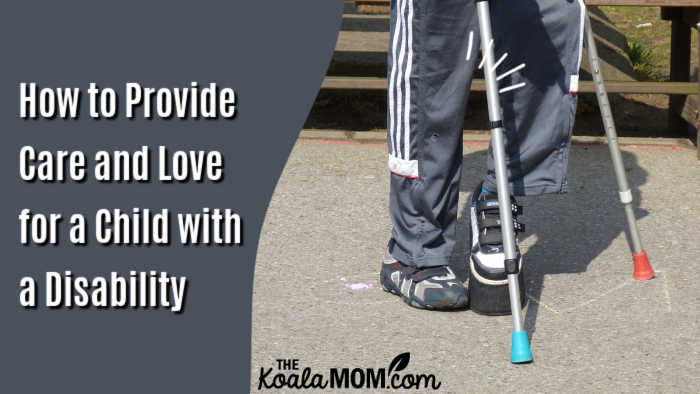Most parents want to do everything they can to provide for their children and give them a good life. Receiving the news that your child has a disability can be crushing and scary. You may wonder how to care for your child or how your child will succeed in life.
It is important to remember that your child is still the same person, with the same needs, just in a different body. If you are wondering if your child has special needs, or if you’ve already received a diagnosis of a disability, here are some ways you can provide love and care for your child despite this news.

If They Have Hearing Problem, Get Them Hearing Aids
If your child has a hearing disability, it is important to get them fitted for hearing aids as soon as possible. Hearing aids will help your child hear what is going on around them and communicate better. Even young babies who can’t talk yet learn a lot by listening to the sounds around them.
It is important to remember that you will need to be patient when teaching your child how to use their hearing aids. It may take some time for them to get used to wearing them and using them properly. You can find them in an online hearing aid store and have them shipped to your door.
A friend of mind has a daughter who needs hearing aids. She’s a tiny girl who is just learning to crawl and yet she can also pull her hearing aids out of her ears. My friend often puts adorable head wraps and coverings on her daughter to help keep the hearing aids in place. She explained to me that her daughter can hear quite a few sounds, but not certain sounds, so wearing her hearing aids will help her hear this whole range of sounds and also learn to speak better once she begins making her own sounds.
If They Have a Visual Impairment, Get Them a Seeing Eye Dog
If your child has a visual impairment, you may want to consider getting them a seeing-eye dog. A seeing-eye dog can help your child to get around and be more independent. They will also provide your child with companionship and love. It is important to remember that you will need to train the dog yourself, so make sure you are up for the task before you get one. Additionally, you will need to take the dog to the vet for regular checkups and vaccinations.
Meet their Developmental, Educational, and Emotional Needs
Just like all children, children with disabilities need to have their developmental, educational, and emotional needs met. Make sure to research what resources are available in your area so you can provide your child with the best possible care. You may also want to consider joining a support group for parents of children with disabilities. This can be a great way to connect with other parents who understand what you are going through.
Always remember that you know your child best—better than their teachers or education assistants or tutors. My friends whose kids have special needs have had to push very hard to have their child’s educational needs met. Our public school systems, unfortunately, tend to cater to the average student. Homeschooling can a wonderful way to help your child receive a good education if they have a disability that might hold them back in a generic school.
If They Are Nonverbal, Teach Alternative Communication Methods
If your child is nonverbal, there are still plenty of ways to communicate with them! There are many alternative communication methods available, such as sign language, picture boards, or even apps on your phone. It is important to find a method that works for both you and your child so you can communicate effectively.
Because as adults, we rely on speech so much to communicate, we often forget about other methods of communication. I love the movie Wall-E because most of the story is told without words. I think the first dialogue comes over halfway into the movie. It’s a good reminder that facial expressions, noises, and so many other things can be used for communication—even with a robot.
I’ve always been amazed at how much my babies have communicated with me before learning to speak. The more we respond to their needs and encourage this communication, the more they will communicate. We can then help those around them (grandparents, caregivers, etc.) learn to communicate with our children even as we teach our children to communicate.
Educate Yourself about Their Disability
One of the most important things you can do for your child is to educate yourself about their disability. A diagnosis or even a hint of a diagnosis can be scary, but knowledge is also power. Research and education will help you to understand their needs and how to best support your child.
For example, when I suspected that one of my kids might have dyslexia, I poured myself into research. Knowing more about it helped me look at her educational needs differently and then decide that she likely didn’t have dyslexia, but my research was still useful.
There are many resources available online and in your local community. Additionally, there are often workshops or classes you can take to learn more about caring for a child with a disability. For example, the Autism Society offers a variety of resources and classes on its website. You can also check with your child’s doctor or therapist for more information.
Be an Advocate for Your Child
It is important to be an advocate for your child, both inside and outside the home. This means educating yourself about their rights and making sure they are getting the services and support they need. It can also mean speaking up when you see someone being disrespectful or discriminatory towards your child. Remember, you are your child’s biggest ally!
Remember That Your Influence Outweighs All Others
At the end of the day, remember that your influence as a parent outweighs all others. Your love and support are what will help your child to thrive, no matter what challenges they face. So don’t be afraid to show them just how much you care! Also, don’t forget to take care of yourself! Caring for a child with a disability can be extremely rewarding but it can also be challenging. Make sure to take time for yourself so you can recharge and be the best parent you can be.

Providing adequate care and love for a child with a disability may seem daunting, but it is definitely possible! Just remember to be patient, research what resources are available to you, and most importantly, to never give up on your child. Nothing less than your best is acceptable for them.

No Responses Yet